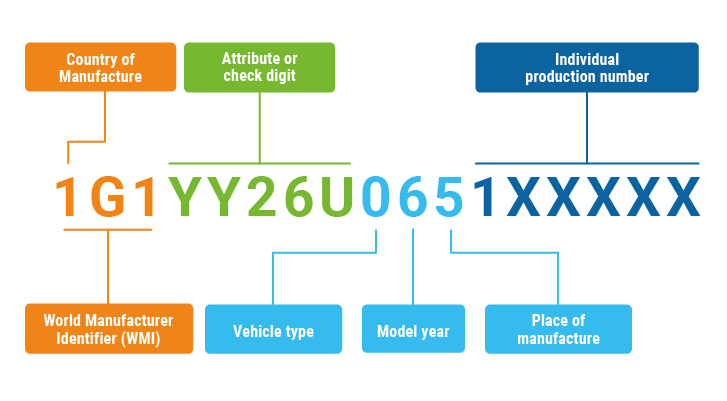The Importance of VIN Check: Everything You Need to Know

Every vehicle has a unique identification number known as the Vehicle Identification Number (VIN). This identification number is a combination of 17 letters and digits that act as a fingerprint for your vehicle. It is essential for tracking and identifying a car, truck, or motorcycle. A vehicle identification number check is a necessary process that should be done before purchasing or selling a vehicle. This article will discuss the importance of a VIN check and everything you need to know about it.
What is a Vehicle Identification Number (VIN)?
A Vehicle Identification Number (VIN) is a unique identification number assigned to each vehicle. It consists of a combination of 17 letters and digits that are specific to a particular vehicle. The VIN is used by the manufacturer, government agencies, and law enforcement to identify a vehicle. It contains information such as the manufacturer, model, year of manufacture, and vehicle serial number.
The Importance of Vehicle Identification Number Check:
Identify Theft Prevention:
A vehicle identification number check is crucial in identifying stolen vehicles. The VIN can be used to check if a vehicle has been reported stolen. This helps to prevent the purchase of stolen vehicles, which can lead to legal issues for the buyer.
Verification of Vehicle History:
A VIN inspection is also crucial in verifying a vehicle’s history. It can reveal if a vehicle has been involved in an accident or has outstanding liens or loans. A VIN inspection can also indicate if a vehicle has been salvaged, flooded, or rebuilt. This information is crucial when purchasing a used vehicle.
Safety Check:
A VIN inspection can also help identify any vehicle safety recalls. It is crucial to address any safety issues before purchasing a vehicle. A VIN inspection can also indicate if a vehicle has been involved in any major accidents that may have compromised its safety features.
Insurance Verification:
Insurance companies use VINs to identify vehicles and provide coverage. A VIN inspection can help verify the accuracy of the seller’s information and ensure that the vehicle is insurable.
Proof of Ownership:
A VIN inspection can also help verify the ownership of a vehicle. The VIN can confirm that the seller is the vehicle’s rightful owner and has the legal authority to sell it. This helps prevent fraudulent sales and protects buyers from purchasing a stolen or illegally obtained vehicle.
Resale Value:
Knowing a vehicle’s history can also impact its resale value. If a vehicle has been involved in an accident or has a salvage or rebuilt title, it may decrease the resale value. On the other hand, a vehicle with a clean history and no accidents may have a higher resale value. A VIN check can provide insight into a vehicle’s history and potentially impact its resale value.
Compliance with Regulations:
A VIN inspection can also ensure that a vehicle complies with government regulations. For example, a VIN inspection can reveal if a vehicle has been modified or has had aftermarket parts installed that may not comply with safety regulations. This can help prevent legal issues and ensure the vehicle meets safety standards.
Peace of Mind:
Performing a VIN inspection can provide the buyer and seller peace of mind. The buyer can have confidence in the vehicle’s history and safety, while the seller can ensure they sell a legitimate and legal vehicle. A VIN inspection can help prevent potential issues down the line, such as legal disputes or safety concerns, and provide a smooth and worry-free transaction for both parties.
Avoidance of Financial Loss:
Performing a VIN inspection can also help prevent financial loss for both the buyer and seller. If a vehicle has outstanding liens or loans, the new owner could be held responsible for paying off the debt. A VIN inspection can help identify any outstanding loans or liens, ensuring the buyer knows of any financial obligations associated with the vehicle. Similarly, a seller can use a VIN inspection to confirm that the vehicle has no outstanding loans or liens, preventing potential financial loss and legal issues.
How to Perform a Vehicle Identification Number Check:
A VIN inspection can be done in several ways. The most common methods include the following:
- Online VIN Inspection: Several online services provide VIN inspections. These services usually require the VIN and a fee to perform the check. Online VIN reviews can provide a detailed vehicle history report, including accidents, liens, and ownership history.
- Government Agencies: Government agencies such as the Department of Motor Vehicles (DMV) and the National Highway Traffic Safety Administration (NHTSA) also provide VIN reviews. These services are usually free of charge and provide basic information such as the vehicle’s make, model, and year.
- Independent Inspections: An independent inspection can also perform a VIN review. This involves hiring a mechanic or inspector to physically inspect the vehicle and verify the information provided by the seller. This method provides the most detailed information but can be costly.
Conclusion:
A VIN check is an essential process that should be performed before purchasing or selling a vehicle. It can help prevent stolen vehicle purchases, verify a vehicle’s history, ensure safety, and verify insurance coverage. A VIN review can be done online, through government agencies, or through independent inspections. Regardless of the method, a vehicle identification number check is critical in vehicle purchasing.










